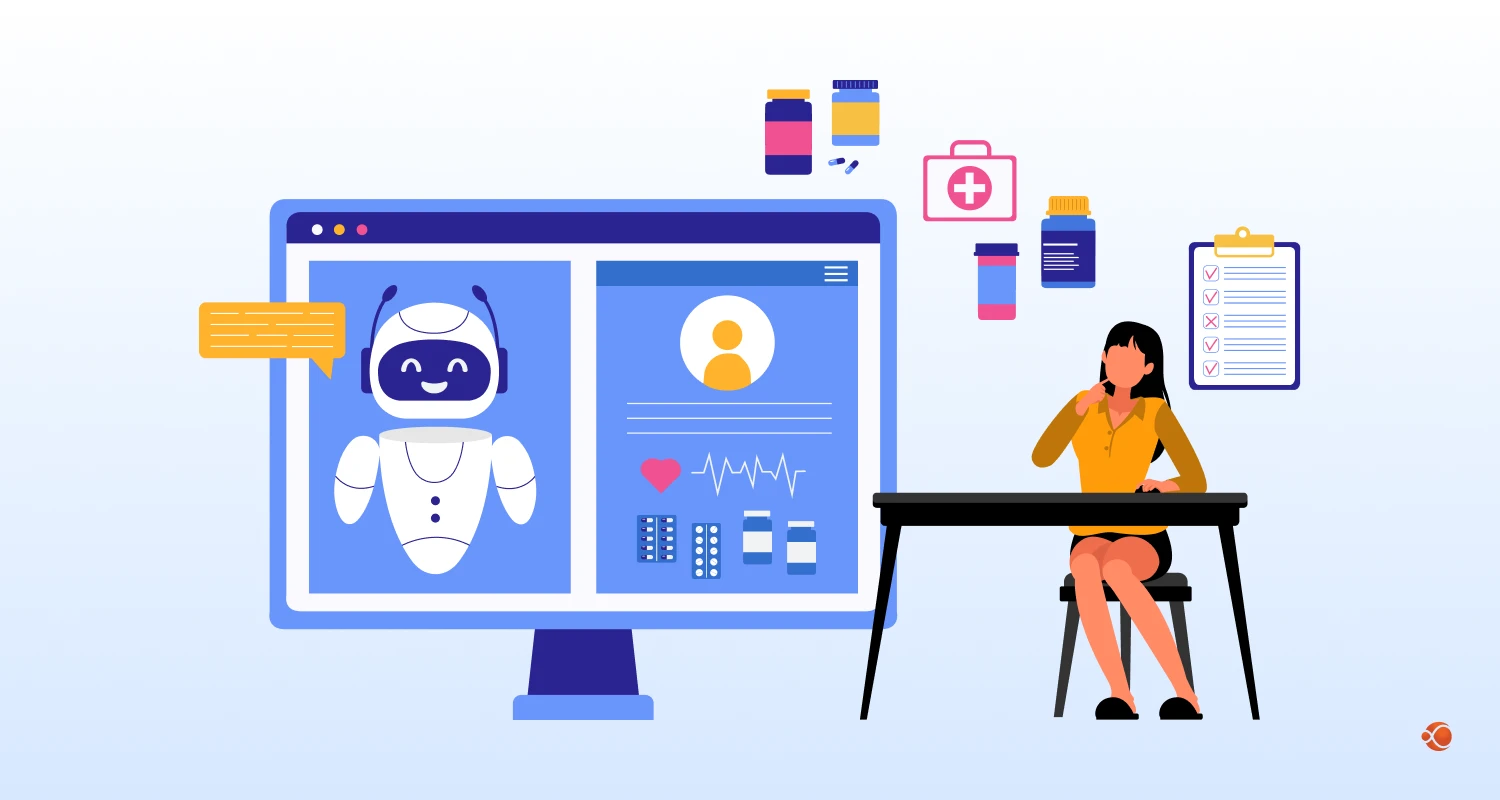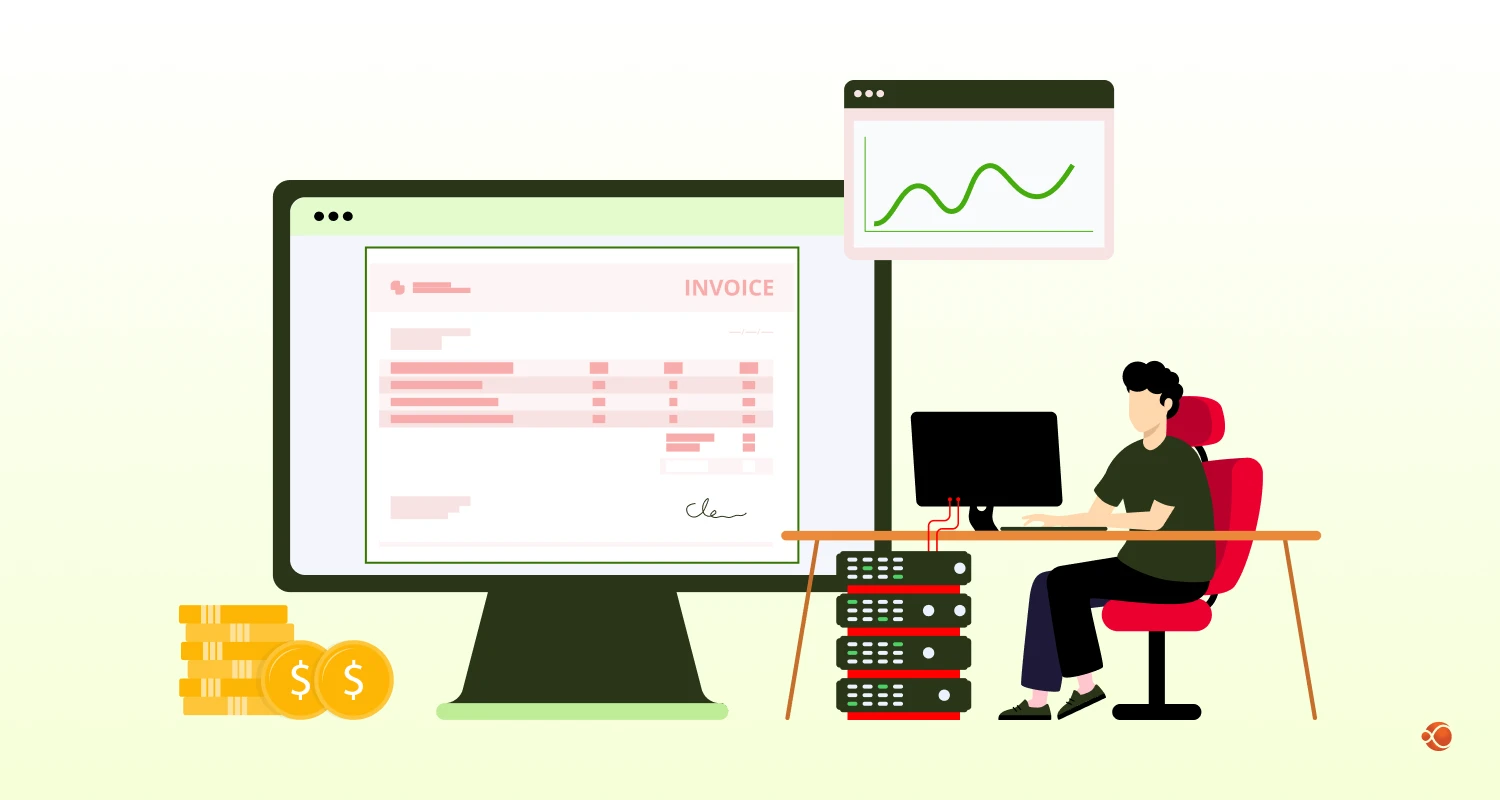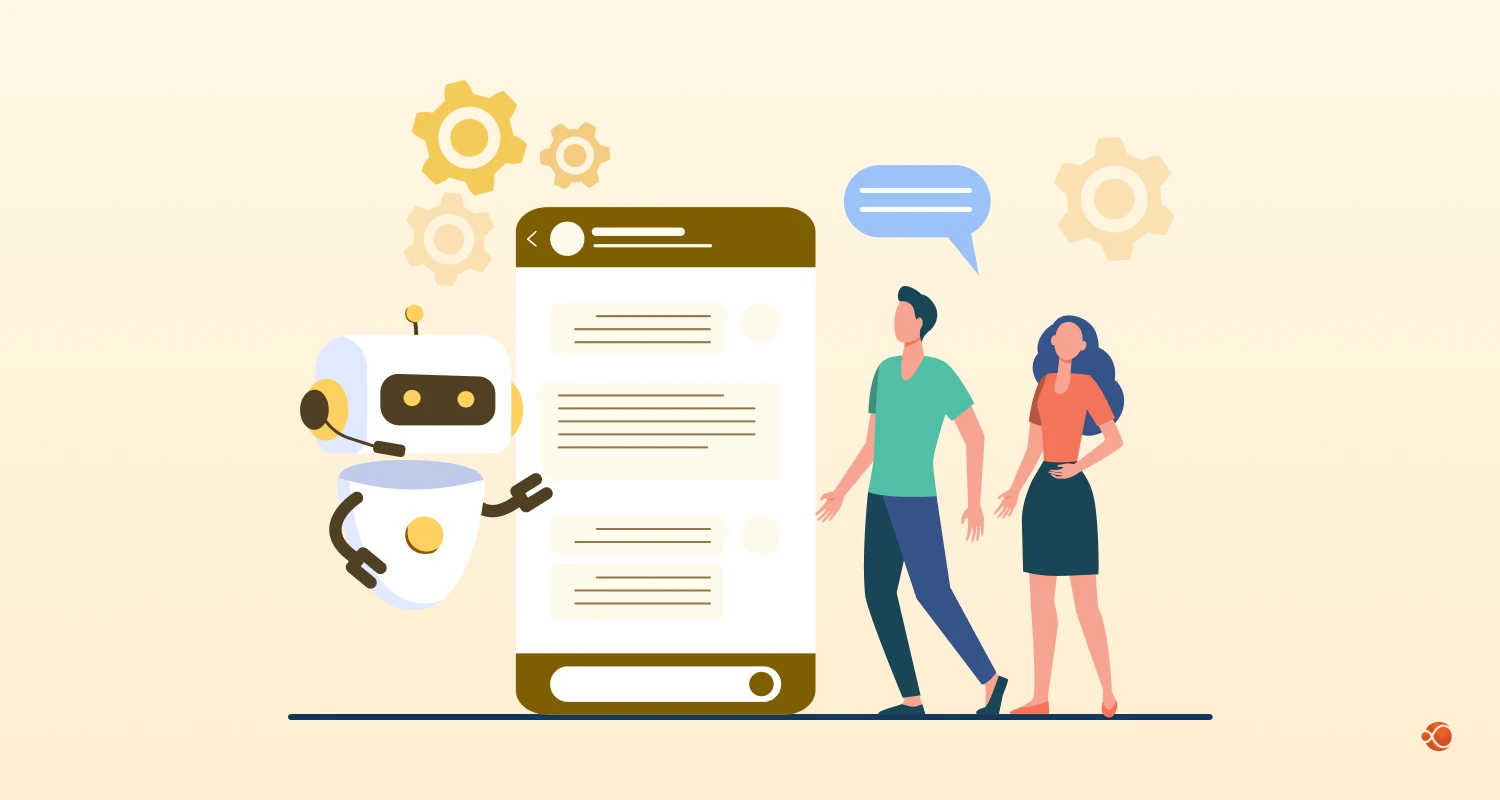Quick Summary: This guide is designed to help you find the right AI agent development company without the usual stress and uncertainty. It provides a simple framework that helps evaluate potential partners based on their expertise, security standards, and real-world results, ensuring your investment leads to genuine innovation and success.
Artificial Intelligence has moved far beyond basic reactive chatbots and automated responses. Today, AI agents are transforming the way businesses operate. Their use cases range from automating customer support and managing workflows to making real-time decisions based on data. These AI agents act autonomously, they adapt to changing environments, and streamline operations in ways that traditional software cannot.
But while the potential of AI agents is immense, their success heavily depends on choosing the right AI agent development company. A wrong choice can result in wasted investment, poor integration, and limited scalability, whereas the right partner can unlock new levels of efficiency and innovation.
This guide examines the key factors businesses should consider when selecting an AI agent development company, including technical expertise, industry knowledge, scalability, security, and the potential for long-term collaboration. Whether you are a startup looking to gain an edge or an enterprise that wants to scale intelligent automation, the decision you make here will have a direct impact on how you shape your competitive future.
Understanding Enterprise AI Agents and Their Strategic Value
Before you begin your vendor search, it’s essential to have a clear and comprehensive understanding of what AI agents are and their strategic importance.
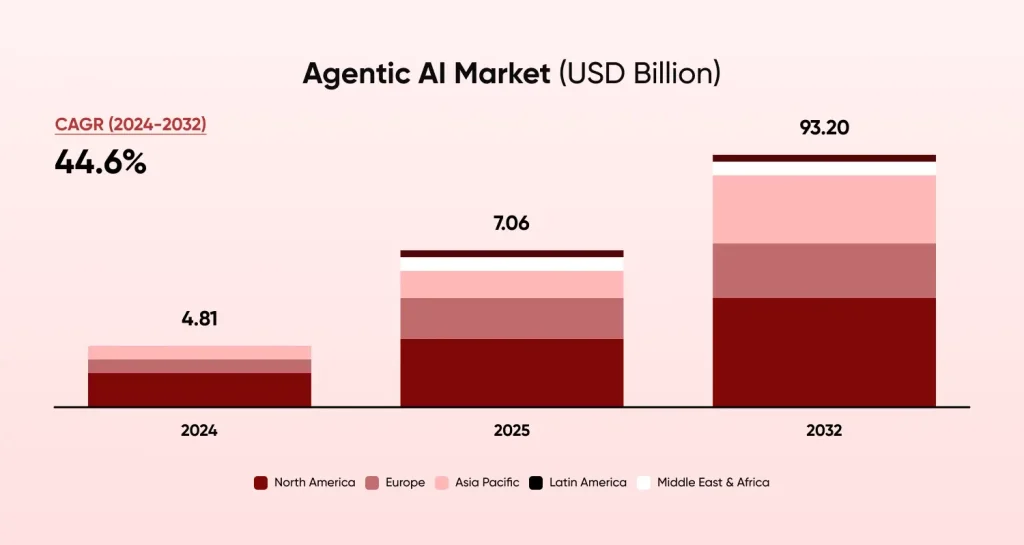
The global AI agent market, which was valued at around $7.06 billion in 2025, is projected to reach over $93.20 billion by 2032, demonstrating a clear and rapid shift towards these autonomous systems.
What Are AI Agents?
AI agents are not just basic chatbots or automation scripts. They are autonomous software systems designed to utilize their environment, check information, and take actions to achieve predefined goals. The key distinction is their ability to adapt and learn over time, making them a powerful tool for solving complex, dynamic problems.
How AI Agents Function: The Four Aspects of AI Agent Application
- Perception: An advanced AI agent is able to process huge amounts of data. This data can be in text, images, and audio formats, and can be fetched from enterprise databases, social media feeds, customer support logs, and more.
- Reasoning: Another important trait of AI agent development is the ability to make complex, context-aware decisions based on pre-defined goals. This transcends the basic rule-based logic of traditional software. For instance, you can build your own AI agent for financial analysis of market trends, news events, and historical data.
- Learning: Using methods such as reinforcement learning or supervised learning, AI agents can gradually become smarter by learning from their past actions. Over time, they improve their decisions and work more efficiently, requiring less constant guidance from humans.
- Action: AI agent application are able to act on tasks in numerous enterprise applications and processes. This encompasses creating detailed reports, updating CRM records, and even engaging with customers using a conversational interface.
These abilities can be used to develop solutions such as a tailored AI agent for one-to-one marketing, a multi-agent system for optimizing complex supply chains, or an internal assistant for automating HR processes with the help of professional AI software development services.
A Multi-Lens Enterprise AI Agents Implementation Framework for Selecting Your AI Partner
To build an AI agent design from scratch or go for custom AI agent development, you need to be very thorough with how to pick and choose the right AI agent development company that can establish an enterprise AI agents implementation framework. We recommend using a multi-lens framework that examines and assesses the potential partners from six different angles/lenses.
| Lens | What It Focuses On | Quick Overview |
| Risk Lens | Security, compliance, and data protection. | Treat the vendor like a high-trust partner. Make sure they enforce strict data protections, compliance (GDPR, HIPAA, SOC2), and ongoing monitoring so your AI doesn’t become a liability. |
| Cost Lens | Pricing models and long-term ROI. | Don’t just pick the cheapest bid. Look at total value: fixed price works for small, defined projects; time & material gives flexibility; dedicated teams are best for long-term AI programs. |
| Value Lens | Business impact and measurable outcomes. | Ask: How will this improve revenue, efficiency, or customer experience? Choose a partner that ties their work to clear KPIs rather than abstract promises. |
| Innovation Lens | Ability to evolve with AI trends and technologies. | AI isn’t static. Select a vendor who actively explores multi-agent systems, automation, and continuous optimization so your solution doesn’t stagnate. |
| Trust Lens | References, case studies, and collaboration style. | Go beyond sales pitches. Talk to past clients, review case studies, and assess how they work day-to-day. A trustworthy partner behaves like part of your own team. |
1. The Business Lens: Defining Your AI Agent Objectives
Like any project, your AI agent development process should start with clearly defined business objectives. It is important to have this clarity before moving forward, or else the project can be at risk of becoming an expensive experiment with no clear ROI.
In-Depth Internal Planning
- Identify the Problem: Clearly articulate the specific business problem you are trying to solve. Is it to reduce customer service costs by 30%? To increase sales efficiency by automating lead qualification? To improve predictive accuracy for equipment maintenance?
- Define the Scope: Determine if you need to build an AI agent from scratch for a single department or if you require a scalable, enterprise-wide solution. Taking a properly phased approach, starting with a Minimum Viable Product (MVP), can be a smart strategy.
- Establish Success Metrics: Understand what does success looks like for your project. Define Key Performance Indicators (KPIs) that are directly tied to your business goals. These could be cost savings, reduced response times, increased revenue, or improved operational efficiency.
Many top firms provide expert AI consulting services to guide businesses through the planning stage. This early collaboration transforms broad ideas into a clear project roadmap, ensuring that goals, scope, and success measures are clearly defined before any development begins.
2. The Technology Lens: How to Assess Technical Expertise and Frameworks
Not every vendor who represents themselves as “AI experts” is capable of dealing with the intricacies of enterprise-class AI agents. You must examine their technology acumen and practices more closely to determine if they are capable of doing the job and are a suitable fit for your project.
Core AI Competencies to Probe
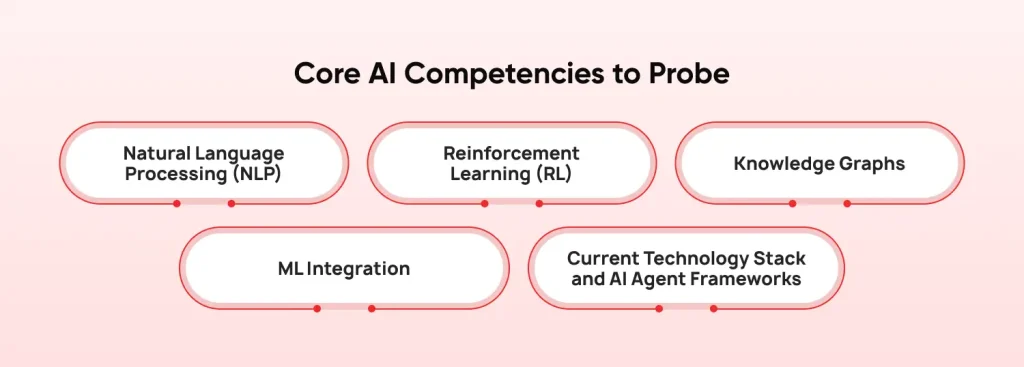
- Natural Language Processing (NLP): Evaluate their ability to build agents that understand context, sentiment, and intent from natural language inputs, and ask for case studies where they’ve demonstrated this.
- Reinforcement Learning (RL): This is one of the most useful ingredients for building truly autonomous agents. Ask for examples of how they’ve used RL for training agents to make complex, long-term decisions and adapt to changing environments.
- Knowledge Graphs: Their expertise in building and leveraging knowledge graphs demonstrates their ability to enable an agent to perform complex reasoning and relationship-based decision-making. This is essential for agents that need to operate in data-rich, interconnected environments.
- ML Integration: A truly competent partner should be able to integrate the AI agent with your existing machine learning development services and models to augment its capabilities with predictive insights. Ask them to describe their process for integrating with your current data infrastructure and legacy systems.
- Current Technology Stack and AI Agent Frameworks: Familiarity with programming languages and frameworks like Python, TensorFlow, PyTorch, and, most importantly, LangChain, which is the most widely used framework for developing applications driven by large language models. A vendor’s history of deploying enterprise AI agents and their capability to create AI agents using GPT or other advanced LLMs is a major green flag. This means they are leaders in AI development, capable of creating agents with enhanced human-like reasoning and conversational capabilities.
3. The Human Lens: Evaluating Collaboration and Team Dynamics
The success of any technology project mainly relies on the people and the processes behind it. An efficient AI agent development company is one you can trust and work with effectively.
Qualities of a Strong AI Development Team:
- Experience and Expertise: The group must include experienced AI agent developers with hands-on experience in reinforcement learning, multi-agent systems, and real-world implementations.
- Cross-Functional Talent: A strong team is composed not only of developers but also data scientists, ML engineers, cloud architects, and business analysts who have the ability to clearly convert your strategic objectives into technical requirements.
- Collaboration Standards: An ethical partner will be open to their project management process. They will need to clearly indicate their usage of Agile or Scrum frameworks, report frequent progress updates, and utilize advanced tools such as Jira or Slack for open communication. Request their post-deployment maintenance processes and how they retrain and optimize models. For long-term projects, use a dedicated team model and hire AI developers who act as an extension of your in-house staff.
4. The Risk Lens: Do They Prioritize Security and Compliance
Outsourcing AI agent development goes beyond technical skill. It’s about trust, security, and ongoing performance. Treating an outsourced AI agent like a valued team member means working with a vendor who safeguards sensitive business and customer data at every step.
Important Risk Factors to Mitigate
- Data Security: Inquire about their data handling arrangements. This entails encryption during the storage and transmission of data, as well as anonymization practices and secure access controls. Find a good history with certifications such as ISO 27001 or SOC 2.
- Compliance: Verify that the vendor has experience in following applicable industry and local regulations, such as GDPR, HIPAA, and PCI-DSS. Request concrete examples of previous projects wherein they have successfully implemented compliance with such requirements.
- Intellectual Property (IP): A clear agreement must include that your business maintains full ownership of all custom AI agent development work, the code of the agent, models, and training data.
- Accountability and Auditability: Check how the vendor monitors and tracks every decision made by the AI agent.

5. The Cost Lens: How to Balance Investment with Value and ROI
When choosing an AI agent development company, always check how they manage different costs and what engagement models they offer.
- Fixed Price: Ideal for projects with clear requirements. Costs are predictable and easy to budget.
- Time & Material: Works best for projects that are likely to change. Pay only for the work done, with flexibility to adapt.
- Dedicated Team: Perfect for long-term AI projects. A full-time expert team ensures ongoing innovation and collaboration.
When evaluating cost, ask about their scalability strategy. Can they build a modular solution that allows you to build your own AI agent in planned stages? Do they have provisions for starting with a minimal viable product and adding functionality later to manage costs effectively? A transparent vendor will provide a clear breakdown of costs and an honest assessment of the time and resources required.
6. The Reputation Lens: Verifying a Proven Track Record
A company’s market reputation and a portfolio of successful projects are the most reliable indicators of its capabilities and professionalism.
What to Look For:
- Case Studies: Review their portfolio for real-world, enterprise-scale deployments of AI agents development, not just small-scale prototypes or proof-of-concept projects. Look for measurable results and clear business outcomes in these case studies.
- Client Testimonials: Find testimonies that speak above mere flattery. They should highlight the working process, reflect on their problem-solving abilities, and their capability to deliver on commitments.
- References: When you’re vetting an AI development company, ask them to put you in touch with some of their past clients. Hearing from other businesses that have worked with them can give you a great sense of their way of communication, how they handle challenges, and the kind of results they deliver.
Why CMARIX Is Your Preferred AI Agent Development Company
Staying ahead in business today means having intelligent systems that can learn, adapt, and drive growth. At CMARIX, as a leading AI agent development company, we have a team of skilled AI agent developer who build AI agents that turn complex challenges into strategic advantages. Our approach is straightforward: we engineer sophisticated, data-driven solutions that give your operations/products a significant competitive edge.
- Holistic Expertise, Proven Results: Our team of over 240+ in-house experts goes beyond simple AI, seamlessly integrating intelligent solutions into your existing systems for maximum efficiency.
- Extensive Experience: With over 1,400 web applications and 800 mobile applications developed for clients in 46 countries, our extensive experience ensures a smooth integration process.
- Deep Technical Knowledge: We leverage the latest frameworks and models, including Python, TensorFlow, and a range of large language models (LLMs), backed by deep expertise in machine learning, NLP, and computer vision.
- A Client-First Partnership: We don’t just build solutions; we work as a true partner, offering strategic consulting and transparent communication from the initial concept to post-launch maintenance.
Final Words
AI is no longer something that’s only in sci-fi movies; it’s becoming a fundamental part of how we do business. And for you to succeed with it, the most important decision you’ll make is finding the right partner.
The best AI agent development company isn’t just a tech vendor. They’re a true collaborator. They’ll bring a ton of technical skill and a laser focus on security, but they’ll also work side-by-side with you to build a product/service that fits your business goals perfectly.
Whether you’re looking to use a powerful tool like GPT to build an AI assistant for customer service or you are looking to build an AI agent from scratch for automating key tasks, your selection of the right AI agent development company is the most critical step you’ll take. It’s not just about hiring a service; it’s about building a partnership for your future.
FAQs To Ask Your AI Agent Development Company
How to Create an AI Agent?
Creating an AI agent involves defining its purpose, gathering and preparing data, choosing the right tools and frameworks (like LangChain or PyTorch), and then building, testing, and deploying the model. The process can range from using simple no-code platforms to complex, custom development.
Can I Create My Own AI?
Yes, you can create your own AI. For beginners, this is often done using accessible platforms and pre-trained models, while more advanced users can build custom agents from scratch with programming languages like Python.
How to Choose an AI Agent Development Company?
To choose a development company, you should define your business goals and evaluate their technical expertise, portfolio, and case studies. Look for a company with a strong research culture that prioritizes ethical AI and offers customizable solutions.
How Much Does It Cost to Develop an AI Agent?
The cost of developing an AI agent can vary greatly, ranging from as low as $10,000 for a simple chatbot to over $250,000 for a complex, enterprise-grade system. Key factors influencing the price include complexity, features, and the level of customization. For an accurate estimate contact our team.
Can You Make Money From AI Agents?
You surely can make money from AI agents by offering them as a service to businesses or individuals, either through a subscription model, usage-based pricing, or by charging for specific outcomes. They can also be used internally to automate tasks and improve output efficiency, leading to cost savings.





